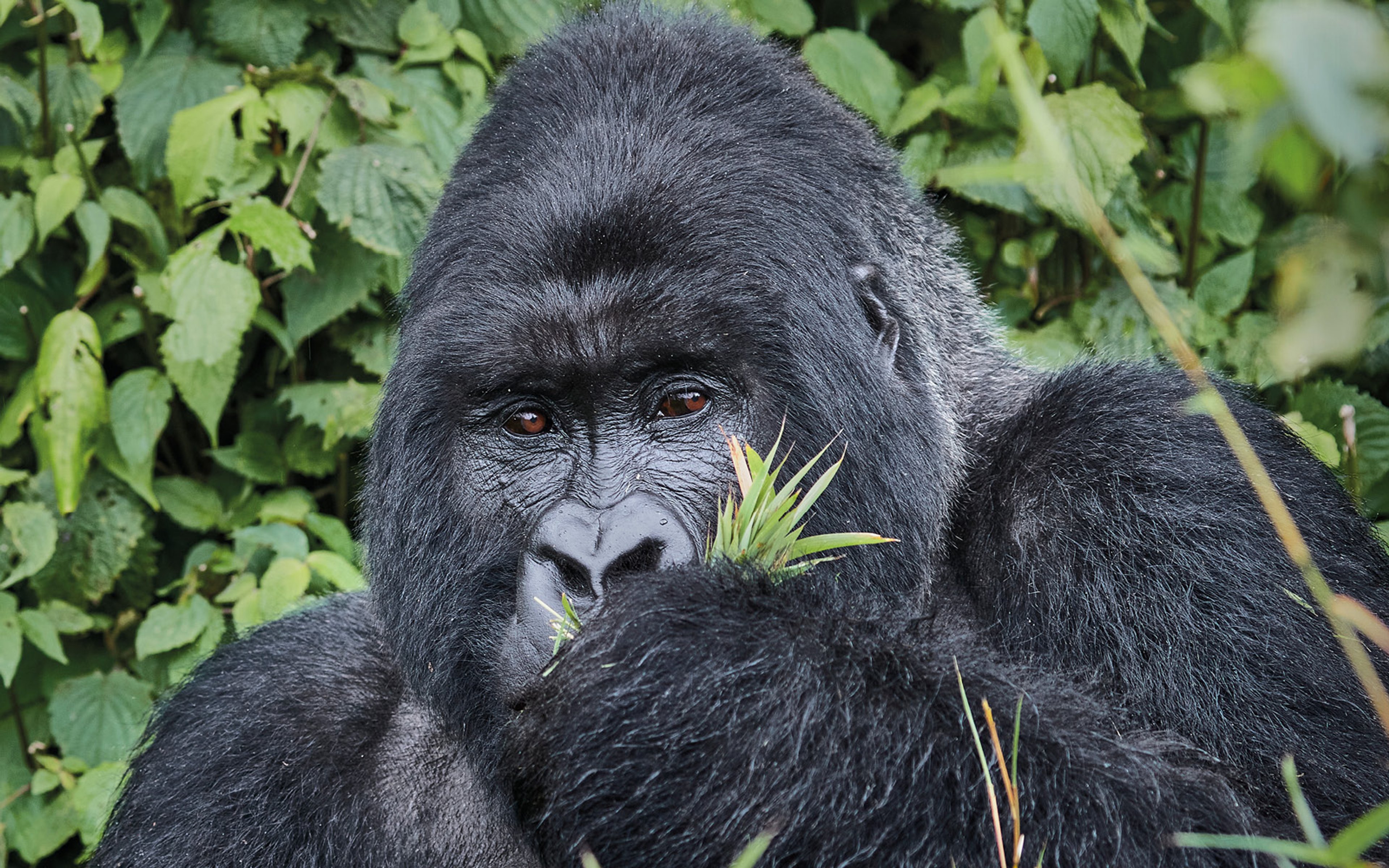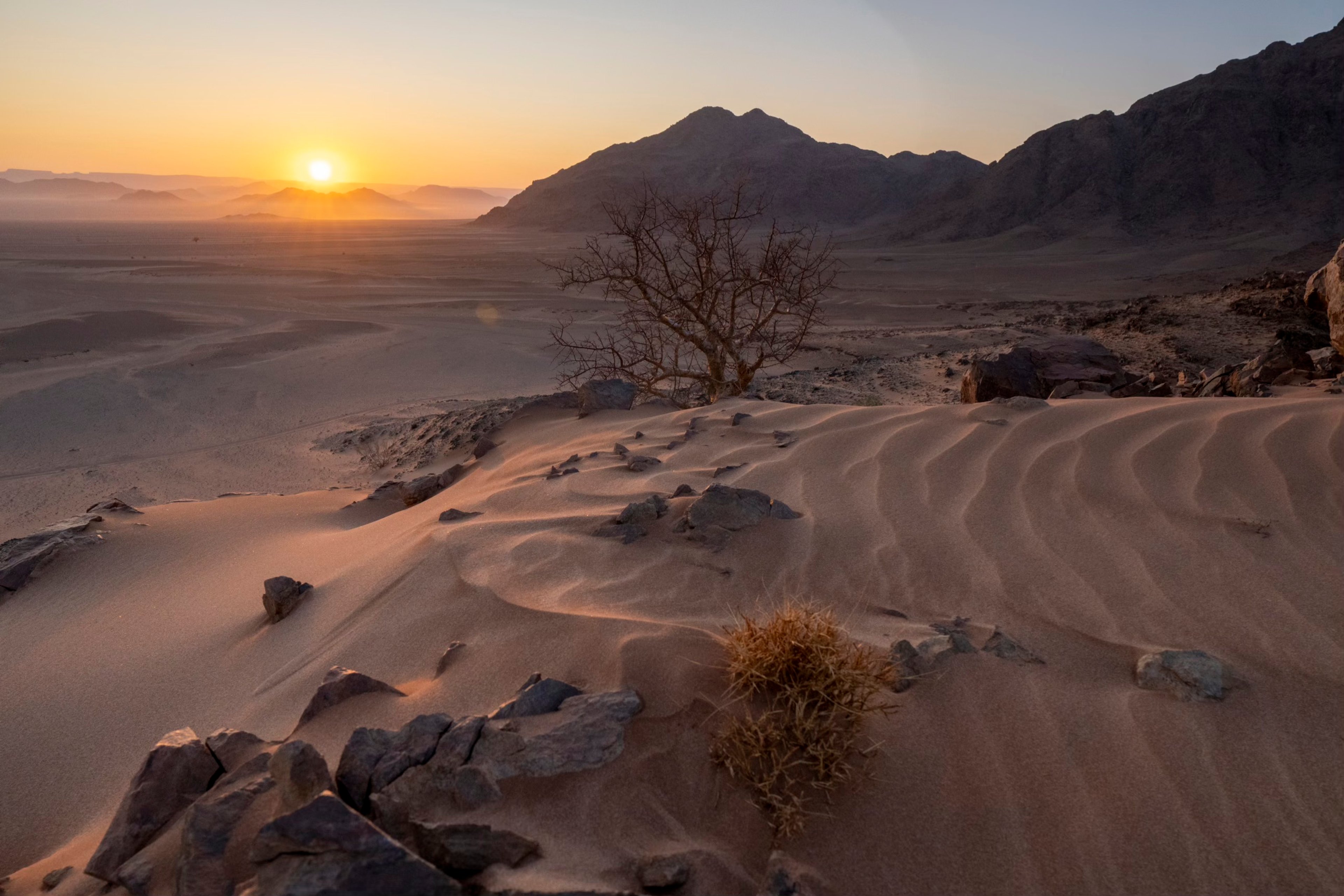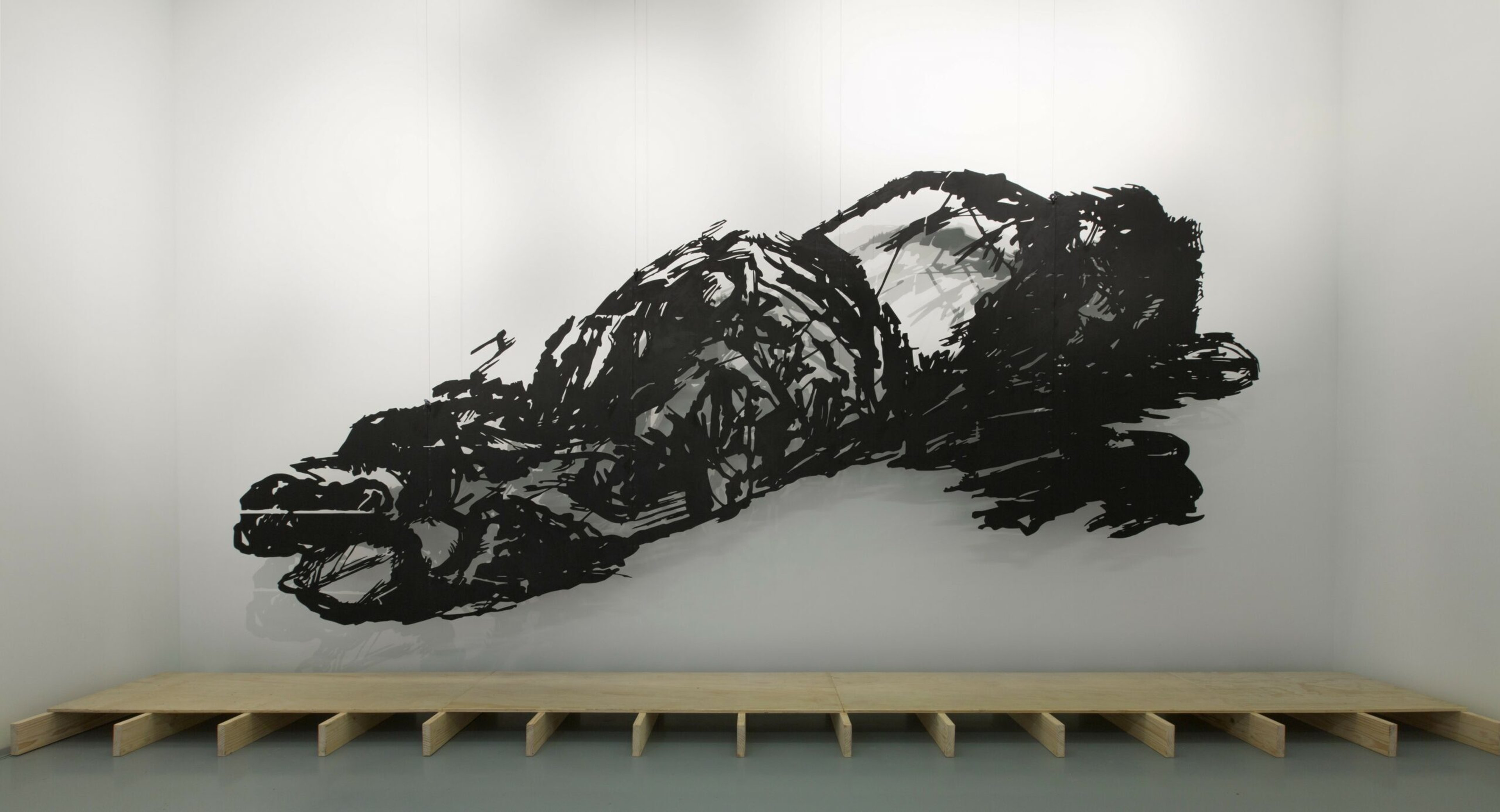For most of us, the real thrill of going on safari in Africa is the opportunity to see wild animals in close proximity. And, to be in close contact with a mountain gorilla, an animal that shares 96% of our DNA as humans, is like holding up a mirror to ourselves. My first visit to the gorillas in Rwanda’s Volcanoes National Park was humbling and breathtaking because of the silent bond of trust that seemed to exist between us – a small group of humans – and the wild family of gorillas which allowed us to observe them whilst they went about their daily business. In fact, it was the recognition of that ancient yet fragile link that had led me, many years earlier, to my husband.
Long before gorilla trekking was a tourist activity, he had spent three weeks climbing though the salad bowl of the Congo forest on a personal quest to see these remarkable primates for himself. One day, I happened upon a photograph of him sitting next to a gorilla and I remember being impacted by the implicit trust evident between them – it struck a deep chord in me. So much so, that on the strength of that one photograph, I just knew I had to meet the human in it. For that image spoke of a shared passion for wildlife and wild spaces and the deep connection that exists between all of us living things. Most of all, it stirred an enormous respect inside of me.
A reminder of what matters
Anyone who has experienced the enormous privilege of trekking to see gorillas will agree that the time you spend with them is incredibly grounding. For in those moments, the white noise of our busy lives and the seduction of our personal dramas is forgotten. It all simply comes down to you and this incredibly powerful wild animal before you, who – with very little reason to trust you – allows you to sit and observe him in his primordial paradise.
Thanks in part to the high cost of gorilla permits which fund preservation and anti-poaching initiatives, the dedicated conservation efforts by the Rwandan government and high-end eco lodges like Singita Kwitonda have brought about an increase in the total gorilla population from around 680 to more than 1 000 in the past decade. It is hard to believe that it has been almost 30 years since this tiny country in the heart of the continent endured one of the worst genocides in living history – a horror that left millions of people dead and its infrastructure, society and wildlife decimated. And yet today the country – affectionately known as “The Land of a Thousand Hills” – is an inspiring place of great hope.
Rwanda has become one of the world’s great conservation success stories, having built a dynamic, sustainable, luxury ecotourism model in the process, as well as pioneering bold initiatives with respect to women’s empowerment. With the mountain gorillas and golden monkeys in the north, and chimpanzees in the south, Rwanda’s rainforests and mountain terrain are home to everything from rhinos, elephants and Cape buffalos, to lions and leopards – not to mention more than 700 species of birdlife.
Singita Kwitonda was named after a legendary silverback gorilla, the late Kwitonda (“humble one”), who led his family out of the war-torn Virunga National Park to safety in the mountains. A jewel in Rwanda’s hospitality offering, the lodge is a place suffused with an incredible energy and dynamism. Set on 70 hectares of land on the border of the Volcanoes National Park, it boasts breathtaking views of the Sabyinyo, Gahinga and Muhabura volcanoes shrouded by the swirling mists that Dian Fossey made famous in her book. As always, Singita’s vision is big – the lodge has been purposefully designed as a buffer zone which will eventually transform the surrounding farmlands into a lush habitat for the gorillas by way of reforestation.
Singita’s goal is to plant 250 million indigenous trees and some 600 000 saplings which will restore these lands once more. The lodge’s low-rise buildings will, in time, become totally integrated into the landscape and the roofs of these contemporary yet iconic buildings have been planted with indigenous orchids and other plants to form micro habitats for butterflies, birds and bees.
Part of the landscape
Singita’s luxurious suites cut a stylish swathe without detracting from the spectacle outdoors. Each of the eight glass-fronted guest suites is designed for engaging with the moody landscape and comes with a palatial bathroom, fully-stocked kitchenette, and indoor and outdoor fireplaces. To retire in your own heated pool, with views of the volcanoes, after a gorilla trek, is a soulful, unforgettable experience. Another highlight in the luxury ecotourism journey is Kwitonda’s farm-to-table philosophy, whereby fresh produce grown on site is served in dishes which showcase Rwandan cuisine.
We are so pleased to announce that Singita Kwitonda is once again where we will base ourselves on the last leg of our Greatest Safari on Earth aboard the Emirates Executive Private Jet, a journey set to take place from August 26 to September, 7 2022. If you are interested in joining us on a 12-day sojourn designed to deliver the ultimate in wonder, adventure and luxury, contact welcome@roarafrica.com




